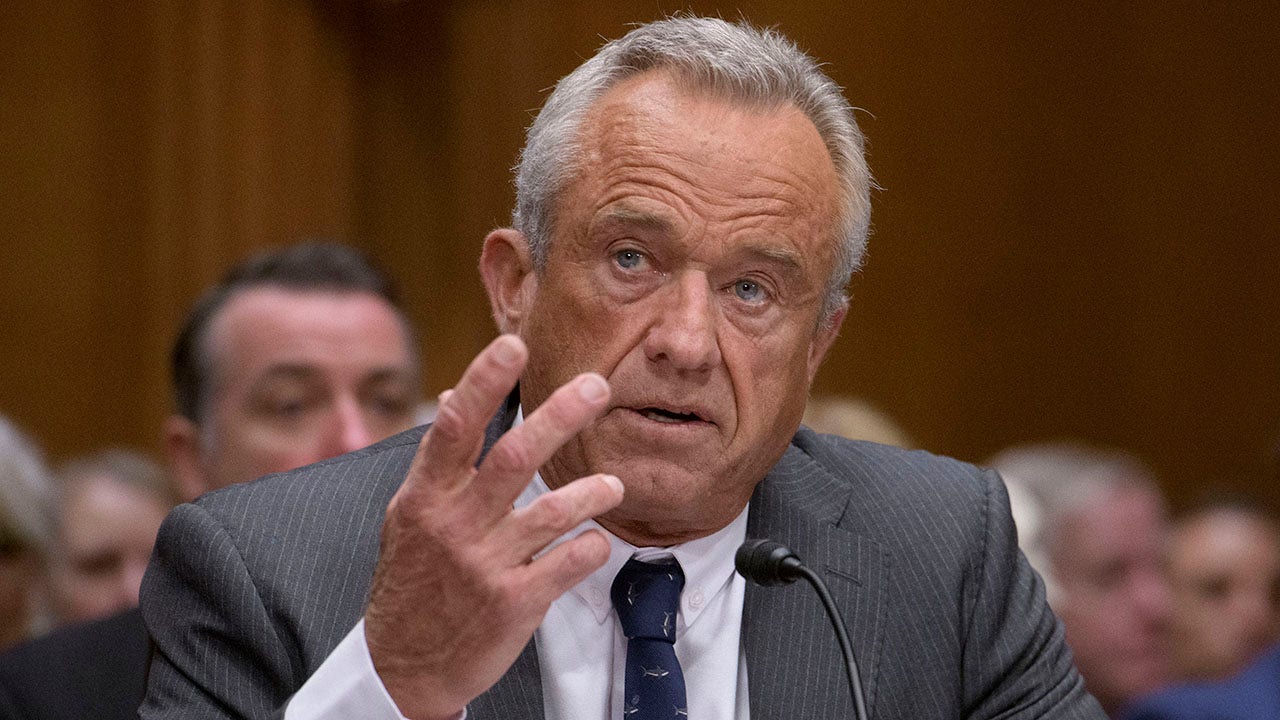Politics
Senate confirms Robert F Kennedy Jr. to serve as Trump’s Health secretary

The Senate Confirms Robert F. Kennedy Jr. as HHS Secretary
On Thursday, the Senate confirmed Robert F. Kennedy Jr. as Secretary of Health and Human Services (HHS) in President Donald Trump’s cabinet. The vote, which was largely along party lines, ended with a 52-48 margin in favor of Kennedy’s confirmation. This outcome followed a contentious nomination process marked by intense debate over Kennedy’s controversial views, particularly his skepticism about vaccines and his outspoken criticism of the pharmaceutical industry. The final vote was preceded by a series of procedural steps, including a party-line vote on Wednesday that initiated the countdown to the confirmation decision.
Kennedy, a well-known environmental advocate and vaccine skeptic, has been a polarizing figure in American politics. His nomination was met with fierce opposition from Democrats, who expressed deep concerns about his suitability to lead the HHS, given his history of spreading debunked claims linking vaccines to autism. Despite this opposition, Kennedy secured the necessary support from Republican senators, with only Sen. Mitch McConnell of Kentucky breaking ranks to vote against his confirmation. McConnell, a longtime supporter of vaccines and a survivor of childhood polio, cited his personal and philosophical differences with Kennedy as the reason for his opposition.
A Controversial Nominee and the Backlash Against His Views
Robert F. Kennedy Jr. is no stranger to controversy. As the nephew of President John F. Kennedy and the son of Sen. Robert F. Kennedy, he hails from one of America’s most famous political dynasties. However, it is his more recent activities that have brought him to the forefront of national debate. For years, Kennedy has been a vocal advocate for vaccine skepticism, leading to widespread criticism from the scientific and medical communities. He has also founded and chaired Children’s Health Defense, a nonprofit organization that has sued the federal government over vaccine policies, including the authorization of COVID-19 vaccines for children.
Kennedy’s views on vaccines were a central focus of his confirmation hearings, where Democratic senators grilled him over his past statements and actions. Many questioned whether someone who has repeatedly undermined public confidence in vaccines could effectively lead an agency responsible for protecting the nation’s health. In response, Kennedy sought to reassure lawmakers that he would base his decisions on science and data, though his track record left many skeptical.
Senate Hearings and the Battle for Republican Support
The confirmation process for Robert F. Kennedy Jr. was marked by intense scrutiny and political maneuvering. In late February, Kennedy faced two grueling Senate confirmation hearings, during which he was confronted with his past rhetoric and actions. Democrats on the Senate Finance Committee ultimately voted not to advance his nomination, but the fate of his confirmation hinged on the Senate Committee on Health, Education, Labor and Pensions (HELP), chaired by Sen. Bill Cassidy (R-La.).
Sen. Cassidy, a physician, had initially expressed reservations about Kennedy’s nomination, citing concerns about his "past of undermining confidence in vaccines with unfounded or misleading arguments." However, after private discussions with Kennedy, Cassidy announced his support, providing the crucial vote needed to advance the nomination on a 14-13 party-line vote. Cassidy highlighted a list of commitments Kennedy had made, including quarterly hearings before the HELP Committee, regular meetings with lawmakers, and a pledge to base vaccine recommendations on evidence-based research.
Other Republican senators who had initially wavered, such as Sens. Susan Collins of Maine and Lisa Murkowski of Alaska, also ultimately supported Kennedy’s confirmation. While they acknowledged ongoing concerns about his views on vaccines, they emphasized the commitments he had made to work collaboratively with Congress and to prioritize data-driven decision-making.
Kennedy’s Vision for HHS and the "Make America Healthy Again" Agenda
Despite the controversies surrounding his nomination, Robert F. Kennedy Jr. has outlined an ambitious agenda for his tenure as HHS secretary. A key component of his vision is a "Make America Healthy Again" campaign, which aims to address chronic diseases and promote healthier lifestyles. Kennedy has called for overhauling dietary guidelines, targeting ultra-processed foods, and exploring the root causes of chronic illnesses. He has framed this effort as a matter of national urgency, declaring, "Our country is not going to be destroyed because we get the marginal tax rate wrong. It is going to be destroyed if we get this issue wrong."
Kennedy’s outspoken Criticism of "Big Pharma" and the food industry has sparked both admiration and alarm. While some view his skepticism as a necessary challenge to powerful interests, others worry that his Views could undermine public health initiatives and scientific progress. As HHS secretary, Kennedy will oversee 18 federal agencies responsible for everything from food safety to drug approvals, giving him significant influence over the nation’s health policies.
Kennedy’s Political Journey and the Road to Trump’s Cabinet
Robert F. Kennedy Jr.’s path to the Trump administration is a story of unlikely alliances and political reinvention. A lifelong Democrat, Kennedy launched a long-shot bid for the Democratic presidential nomination in April 202


















